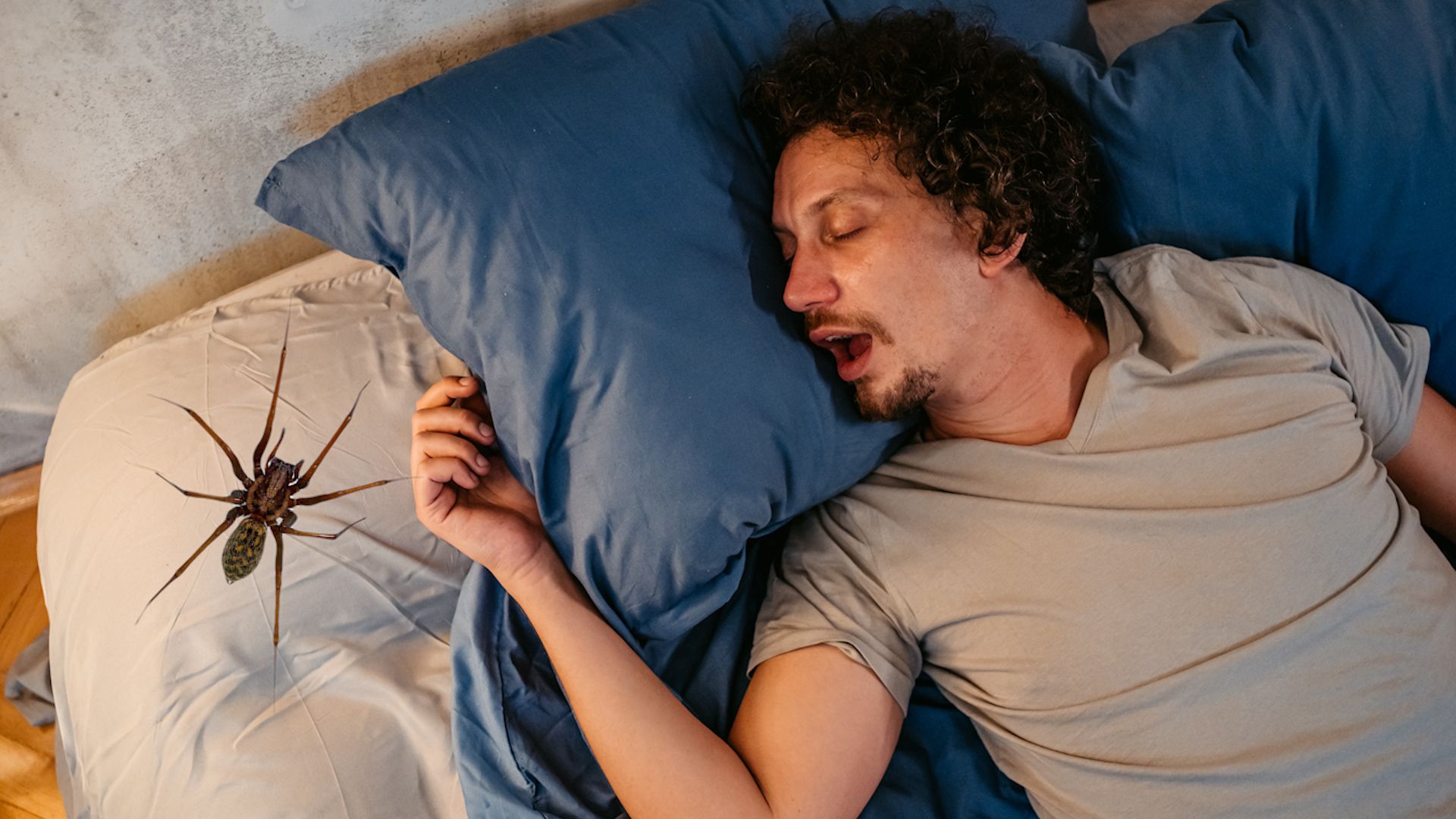Do we really swallow spiders in our sleep?

Do we really swallow spiders in our sleep?
This myth is based on a web of lies.
Encyclopædia Britannica, Inc.
Transcript
Being afraid of spiders is a really common thing. They’ve got a lot of legs. Some of them can do acrobatic jumps. Their web silk is stronger than steel. Some of them have even learned to fish for prey.
And I bet you’ve heard the claim that we humans swallow spiders while we sleep. Over the years, different sources have tried to pinpoint exactly how many midnight spider snacks we consume. The most often cited number is a whopping eight per year.
I have good news, my panicking arachnophobic friends: we don’t actually swallow spiders in our sleep after all.
Let’s all breathe a collective sigh of relief while we learn how this urban legend became an accepted “fact” of popular culture.
This fake fact is actually built on—ahem—a web of lies. No one knows where the original myth came from, but it’s been around for decades. In 2001 the fact-checking website Snopes published an article that purposefully cited a fake magazine article as the rumor’s origin to prove that people were too willing to believe what they were reading on the Internet.*
There are several problems with the idea that sleeping people swallow spiders. First, spiders, most of which are small and harmless, generally avoid interacting with people. Second, even in our sleep, we humans are not still or silent. Our hearts are beating, our chests are rising and falling, maybe we’re even snoring. Spiders don’t want to deal with any of that.
And finally, if a spider did stroll across your face, you’d probably feel it and wake up, making the chances of it ending up in your mouth minimal. And the chances of this happening eight times per year? Basically impossible.
That’s good news for us—and for the spiders.









